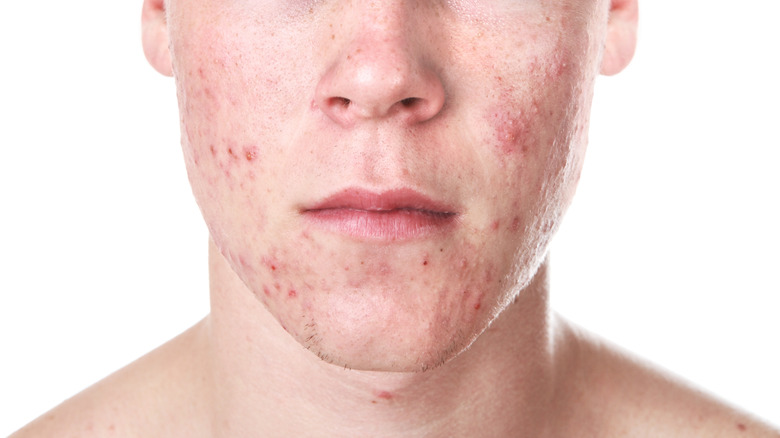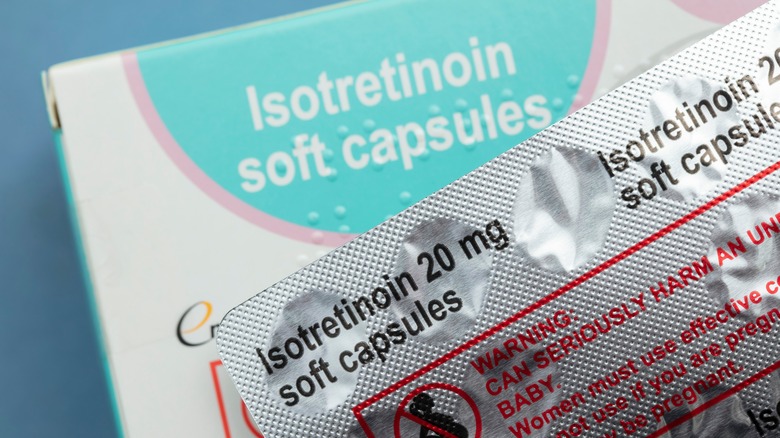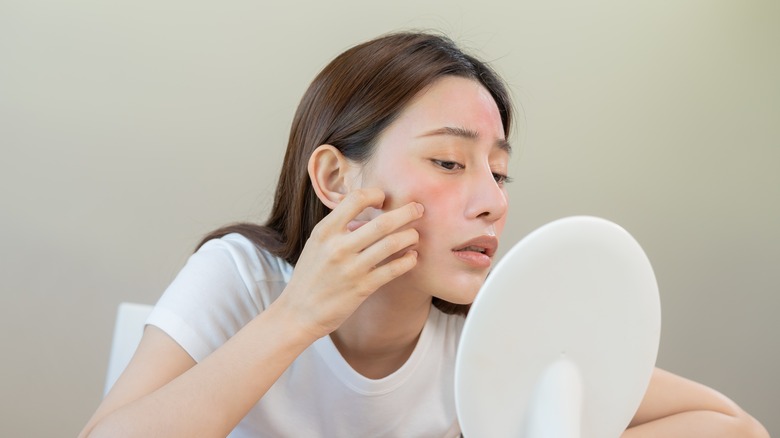This Is How Long It Takes For Accutane To Start Working
The American Osteopathic College of Dermatology describes Accutane (also known as isotretinoin) as a powerful acne drug used by over 2 million people for various types of acne breakouts. A 2022 study published in the journal StatPearls notes that the FDA approved Accutane in 1982 to treat severe acne symptoms, which may persist after using conventional therapy like systemic antibiotics.
Another 2009 study published in the journal Dermato Endocrinology notes that Accutane has been the most clinically effective anti-acne therapy for over two decades and is linked with long-term improvements. Furthermore, Accutane can potentially clear up acne permanently, as noted by American Academy of Dermatology Association. The effectiveness of this medication lies in its formulation that's derived from vitamin A, which stops excess oil production and reduces skin inflammation and scarring, per WebMD.
If you've been prescribed this drug, you may be wondering how long it takes for Accutane to start working. Continue reading as we delve into the details.
How long does it take for Accutane to work?
The NHS warns that Accutane dosage is different in everyone depending on body weight, so it's important to speak to your doctor first before taking it. The source adds that people taking Accutane can expect the therapy to last for about 16 to 24 weeks, with significant improvements to the skin surface continuing for eight weeks after stopping treatment. Most people experience clearer skin at this point, but others may need a second round of therapy.
A huge part of how effective isotretinoin treatment is will be determined by whether you take the right dosage and adhere to some best practices linked to the drug. Some of these best practices include swallowing the capsule with about eight ounces of water and ensuring you don't take the drug on an empty stomach (via Mayo Clinic). The source also advises against breaking, crushing, or sucking the capsules.
As for the average dose, it can differ based on your unique condition, so it's best to stick with your doctor's prescription. As a guide, Drugs.com notes that adults can take 0.25 to 2 mg/kg of isotretinoin orally 2 times daily for up to 20 weeks. The same applies to children 12 years or older battling acne.
Common side effects of Accutane
When using Accutane, you might encounter some side effects, which might stem from various factors including drug interactions. Accutane can interact with many drugs, and some underlying conditions may also cause interactions (via Drugs.com). For these reasons, speaking to your doctor about your medications and medical history before starting your isotretinoin therapy can't be overemphasized.
The NHS also advises against drinking alcohol whilst on Accutane. The source further notes that about 1 in 100 users experience common Accutane side effects, including skin problems like dryness or rashes, headaches, and back or muscle pains. Severe side effects include blurred vision or dizziness, seizures, and strokes, per Healthline. According to Medical News Today, there might also be a link between isotretinoin and inflammatory bowel diseases like Crohn's disease. However, there isn't enough proof to make a strong conclusion. Nevertheless, noting down your symptoms and reporting any side effects to your doctor is always best practice when taking Accutane.



